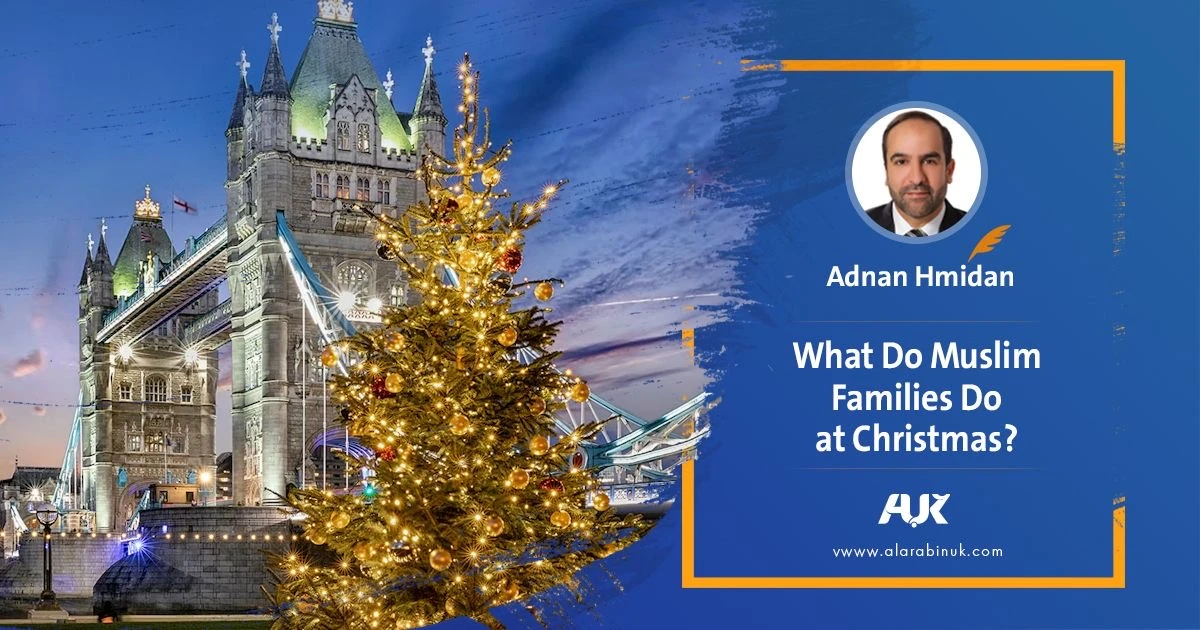What Do Muslim Families Do at Christmas?

By Adnan Hmidan
As Christmas approaches, Muslim families living in diverse societies often navigate a unique set of questions. How can they respect their religious identity while fostering positive relationships with neighbors and colleagues?
For some, this season becomes an opportunity to reflect on the meaning of Christmas and explore ways to engage with its traditions.
For others, it’s a balancing act: upholding Islamic values while participating in broader social customs without compromising their beliefs.
Challenges for Muslim Families
Christmas presents Muslim families with unique challenges, especially in multicultural societies. The key lies in balancing their religious identity with a respectful acknowledgment of others’ traditions. This balancing act is crucial in fostering coexistence, which hinges on mutual respect.
The festive season also offers parents a chance to engage their children in meaningful discussions about values. Christmas embodies themes of generosity, kindness, and community—values that align with Islamic teachings.
By exploring these commonalities, parents can instill an understanding of their faith while encouraging their children to interact positively with others.
The Prophet Muhammad (peace be upon him) famously said, “Every nation has its festival, and this is our festival” (Sahih al-Bukhari).
This highlights the distinct religious significance of Islamic holidays like Eid al-Fitr and Eid al-Adha. Such occasions are not only joyful but also serve as reminders of faith. Parents can use these moments to deepen their children’s understanding of Islamic identity while fostering a sense of respect for others’ celebrations.
What Does “Merry Christmas” Really Mean?
One recurring question among Muslims is whether wishing someone “Merry Christmas” is permissible.
Some argue that the phrase implies endorsement of theological concepts conflicting with Islamic beliefs, such as the divinity of Jesus. However, many Islamic scholars contend this interpretation is too narrow.
Historically, “Merry Christmas” has simply meant wishing someone a blessed and joyous holiday season.
When a Muslim greets a neighbor, colleague, or classmate with this phrase, it doesn’t signify theological endorsement but rather goodwill and respect. Islam encourages coexistence and tolerance, as long as such gestures don’t involve participation in religious rituals or compromise one’s faith.
Consider, for instance, a Muslim with a Christian family member—such as a spouse or parent. In these situations, extending a holiday greeting reflects compassion and understanding. It underscores Islam’s emphasis on harmony and mutual respect, rather than endorsing religious doctrines.
Respecting Others While Maintaining Identity
Muslim parents often wonder how to teach their children to respect others’ traditions while staying true to their own. A simple, polite greeting, such as “We wish you a happy holiday,” conveys goodwill without adopting unfamiliar customs.
At the same time, Christmas can provide an opportunity to strengthen a child’s Islamic identity. By discussing their own faith traditions during the festive season, families can show that tolerance and respect align with Islamic principles. For example, parents can highlight that being kind to neighbors or helping the less fortunate—practices often emphasized during Christmas—are deeply rooted in Islam.
This dual approach ensures children grow up proud of their beliefs while embracing the values of love and compassion that transcend religious boundaries.
Humanitarian Dimensions Beyond Festivities
The Christmas season also serves as a reminder to reflect on global struggles. Many Christian communities in regions like Gaza and Lebanon face hardships during this time, with conflict and war overshadowing their celebrations. Teaching children to empathize with those facing such difficulties fosters humanitarian values.
The Prophet Muhammad (peace be upon him) praised Hilf al-Fudul—a pre-Islamic alliance committed to justice—and stated he would have supported it in Islam.
This example reinforces that upholding justice and aiding the oppressed are universal principles, regardless of religious affiliation. Families can embody these values by raising awareness, offering support, or even praying for those in need.
Navigating Integration and Identity
For Muslims living in culturally diverse societies, integration requires a delicate balance. Rawa Mustafa, a writer based in Germany, reflects on this challenge:
“You cannot focus solely on one side. You must maintain your Islamic beliefs and identity while integrating in a way that makes your life and your children’s lives balanced and relatable within the community.”
She continues, “Coexistence between different cultures and religions is not easy, but it is worth the effort. You can adapt your culture by adding or omitting elements that make you a better person, as long as you remain grounded in your religion and beliefs.”
This approach underscores the importance of engaging with society in meaningful ways without losing touch with one’s faith. It’s a reminder that integration doesn’t mean assimilation but rather finding ways to connect while remaining true to core values.
Ultimately, instilling values like love, compassion, and empathy in children equips them to navigate diverse communities with confidence. These principles, deeply rooted in Islamic teachings, transcend any single occasion and guide daily interactions.
By embodying these values, Muslims can showcase the beauty and universality of their faith. This not only fosters mutual understanding but may even inspire others to explore the inclusive principles of Islam.
As families strive to balance faith and community, they reflect a broader message: that diversity, when embraced with respect and kindness, enriches everyone.
—————————————————————————
Read More
ShortURL ⬇





